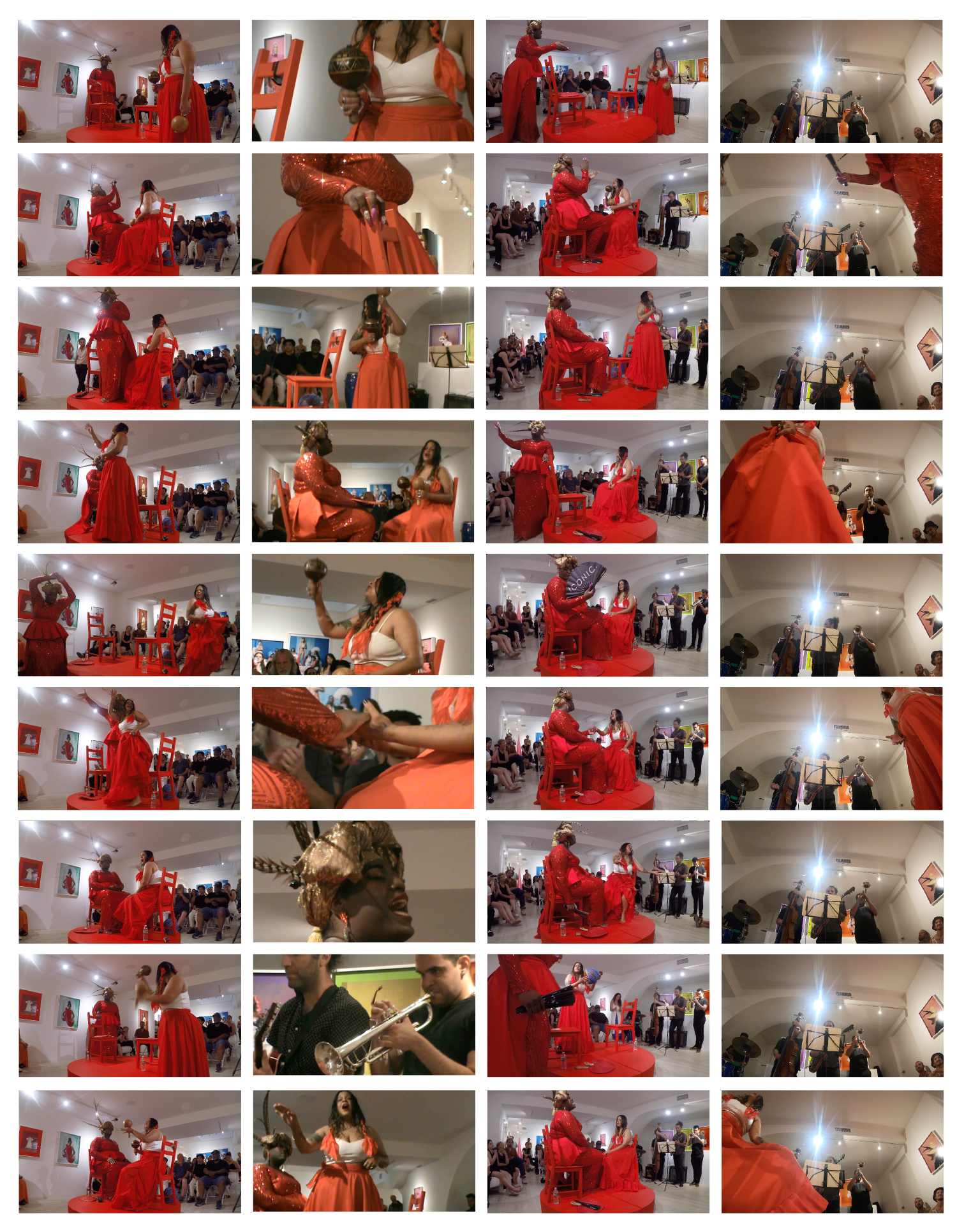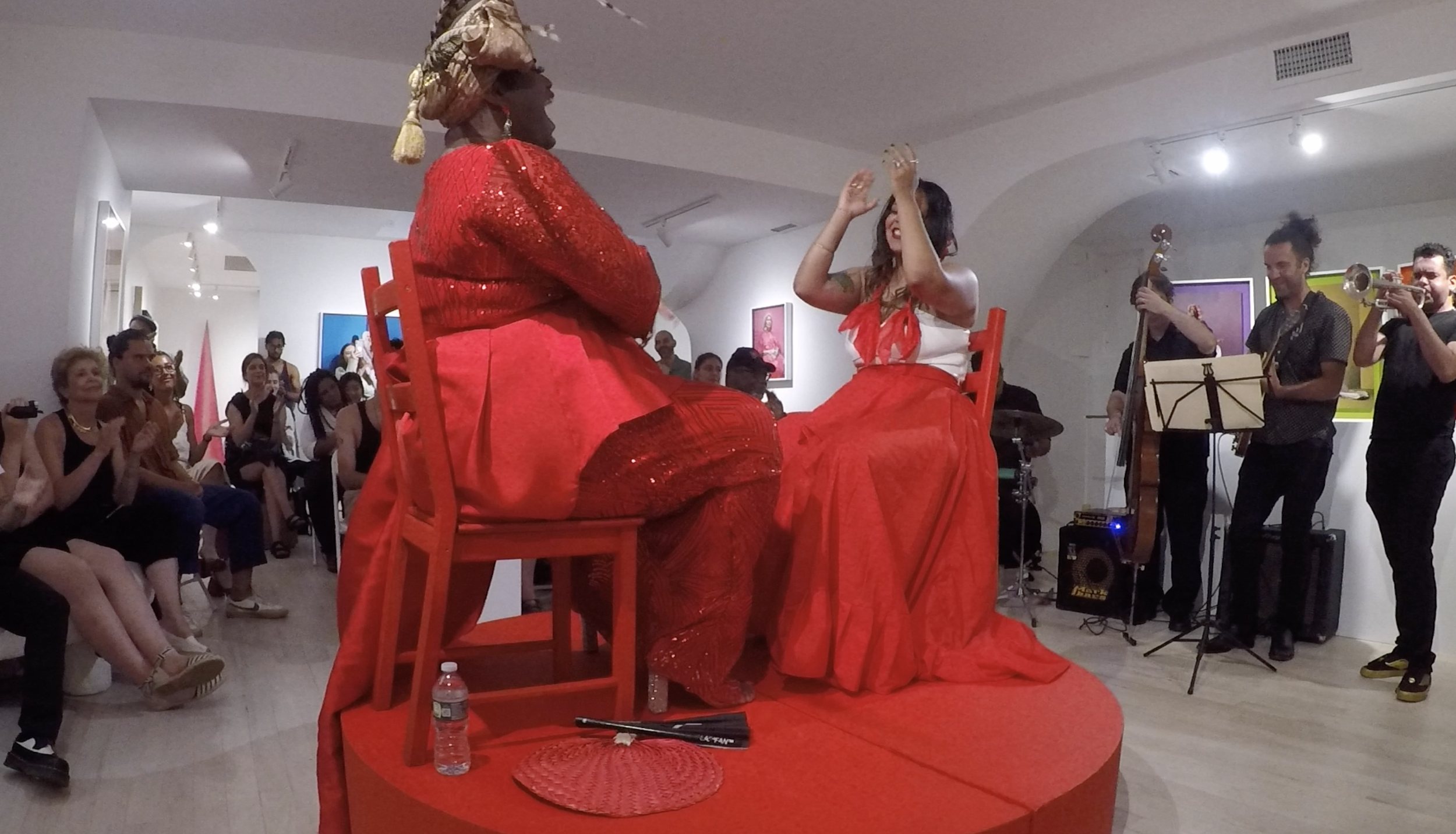Public programming for the exhibition
Gods That Walk Among Us
at Hannah Traore Gallery

Listening Session with Luis Rincon Alba.
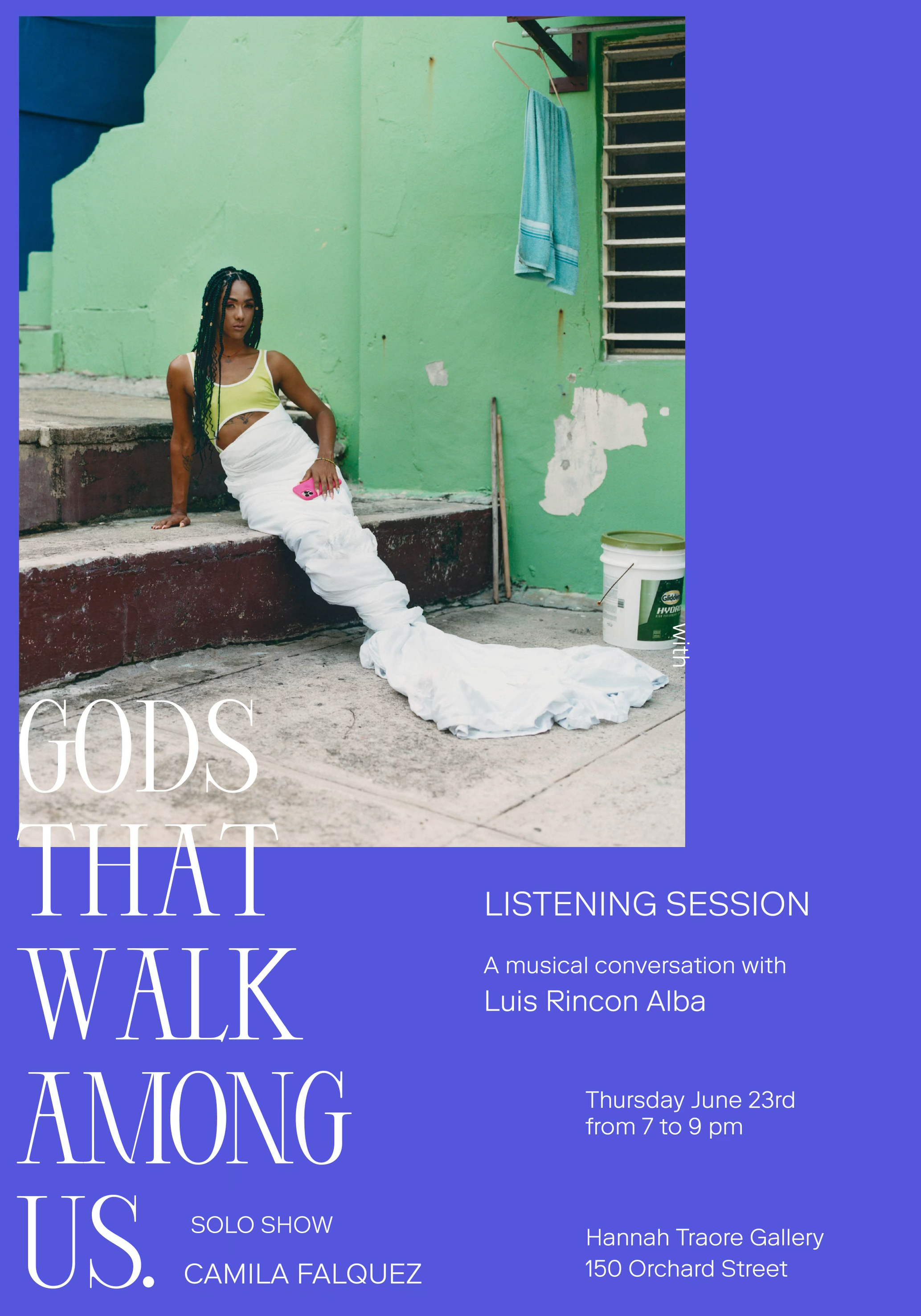
***
"When Camila invited me to organize a gathering at this gallery, what originally was proposed as a talk, I immediately thought of a conversation we had back in early 2021 at La Perla, in El Viejo San Juan, Puerto Rico, after a bomba dance and drumming session. One of those rare occasions we actually talked about photography. Camila expressed her wish for people to listen to the music from which her portraits emerge and how music offers something she recently called in an interview “the transportation power that music has”. I want to stress here that, as you can listen to in her portraits if you allow yourself to listen to them, this musical capacity is the product of a careful orientation toward the musical. The ability to listen to these portraits depends on the capacity to descend to the musical. And the fact that we are required to descend the stairs to enter this exhibition, something that I do not take as a mere coincidence, reminds me of my mentor and friend, poet, and critic Fred Moten when he writes,
You better know that the bridge collapsed. Don’t just enter the music, but descend into its depths. A bone listening, a sensing of the unbridgeable chasm, seen-said, seen cry unheard but for that bone-deep listening, improvisational vision invisible performance, that descent into the music, descent into organization, the ensemble of the senses, unexploded in the cut, excision of the unit, out in the ensemble, in preparation of the necessary sound.
(Moten 83)"
*
Excerpt from the Text Gods That Dance Among Us
by Luis Rincon Alba

IN CONVERSATION
Raquel Willis and Qween Jean
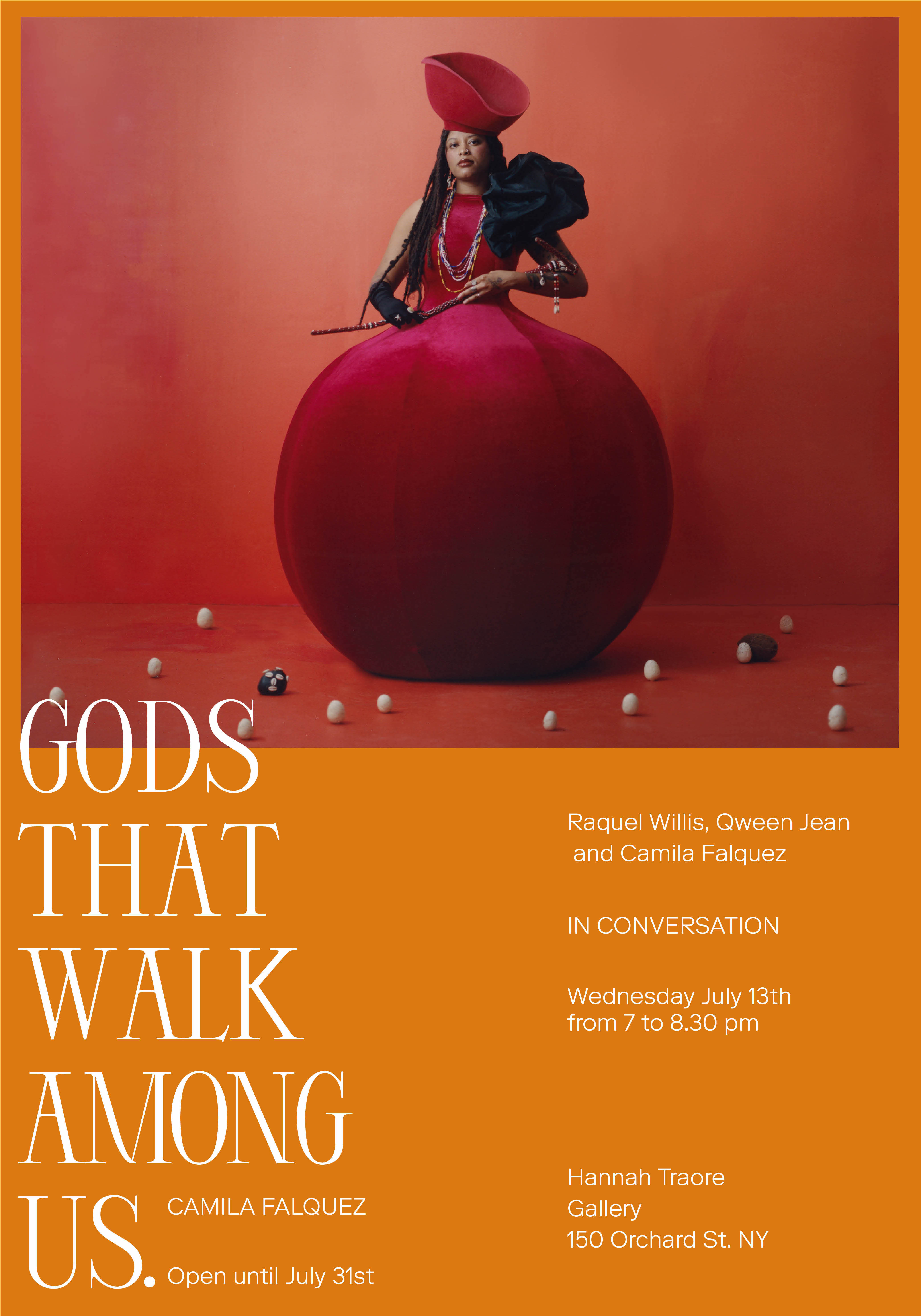

CAMILA
Raquel, I feel like you arrive to the vortex through words. I think if it weren’t for the words that you’ve given us, we wouldn’t know where the path is sometimes. So I want to understand, how are you relating to words these days?
RAQUEL-
You know it’s all mixed up for me. It’s what comes to me, but I don’t feel like it’s all me.
It’s very ancestral. It’s the people who’ve written before it, you know, it’s the Baldwins, it’s the Audrey Lords, it’s June Jordan, it’s so many folks, right? There’s so many. And I mean, you’re right, it does come to me in the words. I’m southern, so look, the draw just comes out y’all.
But, this vortex feeling is like what I feel in charge.
So I came from the Catholic church, but my extended family is like all the other different denominations and the Black American experience. And I had to go to this funeral for like a great uncle like several weeks ago.
I had not been in a church in a minute, y’all, for maybe obvious reasons, <laugh>. And I went. And what I can always count on is that there’s gonna be a moment where the music gets me. And I think about what the experience is like for me to l go home now as this fully realized black trans woman. And there’s a way that I can tap into that emotion and feel it with no judgment. And that’s what embracing queerness and transness has done for me. Whereas as a kid, if I felt any of those things growing up, being raised a little boy, there was no way that was gonna happen.
Right? There is no emotion you could show - mm-hmm. <affirmative>. - So it’s been interesting to think about that. And that sacred connection is the vortex for me. And I felt it at that first Brooklyn liberation. I felt it. Yeah. With the black trans power chant, which was purely divine inspiration because I honestly knew I wanted to have a chant at the end of the speech that I gave. But I didn’t know, I wasn’t fully sure what words were gonna come out at that moment.
we needed some kind of creed to rally around. And the black trans power chant came out of that. And what I appreciate is been folks like Qween Jean, folks like Junior Matt went on to carry that creed forward in, in different ways.
And that for me is also to the vortex, right? So you better make sure that it’s coming from a real intentional space that’s from your values, because you don’t know where that vortex is going to go next.
QWEEN JEAN -
Yeah. Cause it’s going to live beyond you.
I mean, I, I don’t even know if there are honestly words to say. What I’ll say is in that moment changed the game. It shifted the atmosphere, right? This wasn’t about just, “Oh, we’re out here marching” No. This was our purpose. You stood up there and you gave us our marching orders. “When you leave from this place, this is what we’re doing:
I believe in my power.
I believe in your power.
I believe in our power.
I believe in black trans power.-
You know, um, saying yes to your will, saying yes to the way and saying yes to the moment; it’s a confirmation that we actually have to then receive the power and we don’t know what it’s gonna manifest in.
RAQUEL-
I really had no idea. Words have the power to define a moment. Words have power to give a landscape, to fill it with color, to fill it with sound, to fill it with context, to fill it with the community. That’s what happened in that moment.
Black trans people had not been given space at all before then.
Mm-hmm. <affirmative> at all. And the fact that 20,000 people came out was that you had intentionally created space for us to gather and to receive that serving. Thank you.
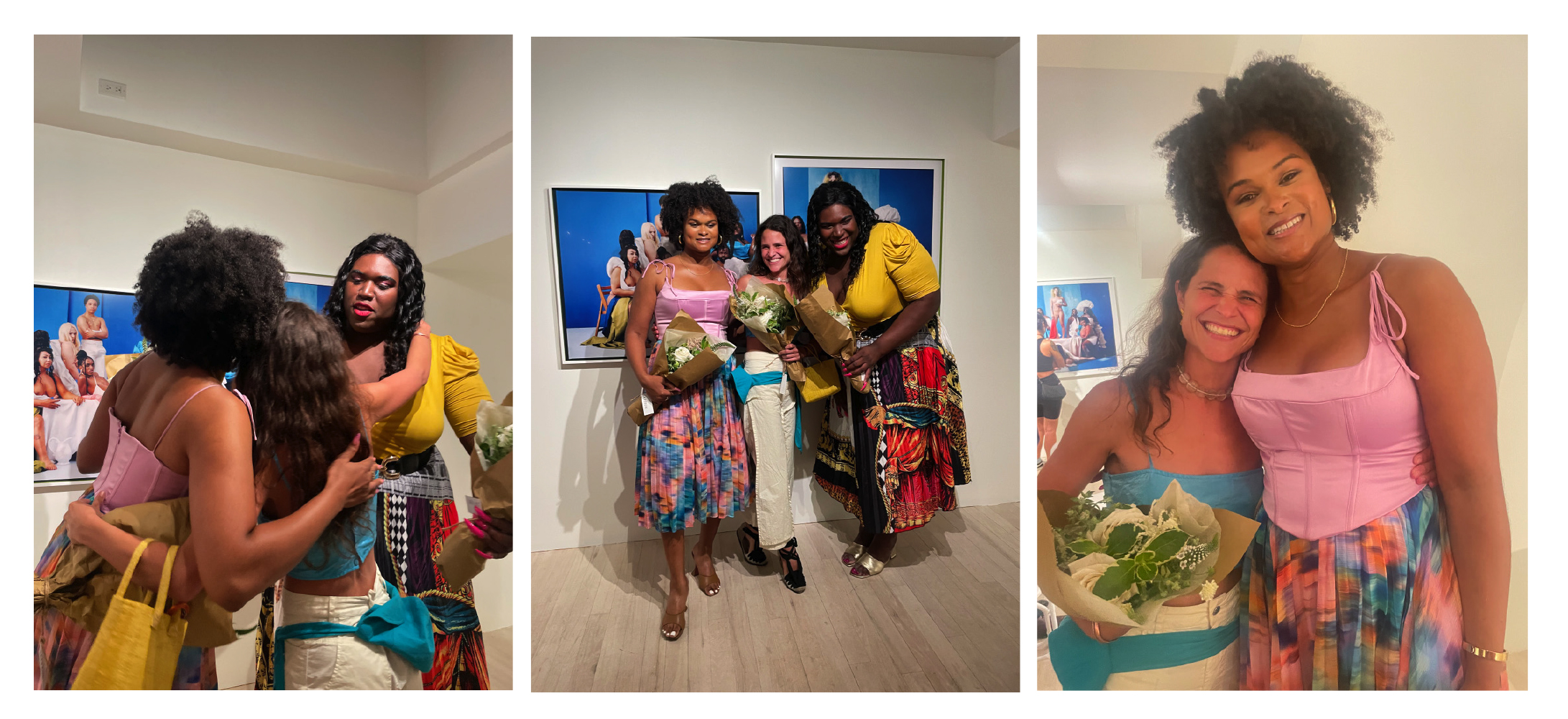
Anthems for Liberation
Performed by Carolina Oliveros and Qween Jean
Music by Jacob Plasse

